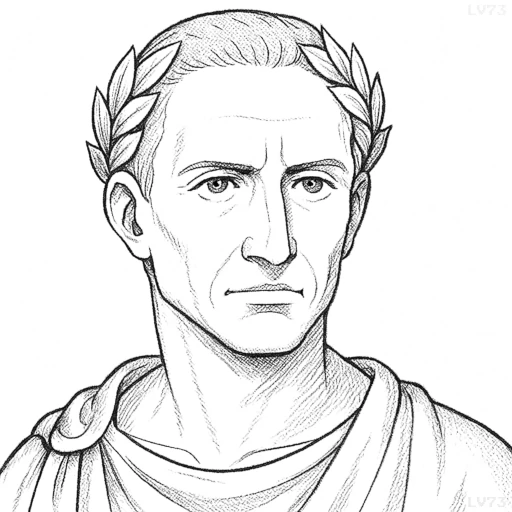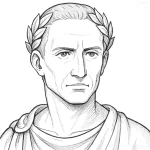“The die is cast.”

July 12, 100 BC – March 15, 44 BC
Roman
Military General, Statesman, Dictator of the Roman Republic, Author
table of contents
Quote
“The die is cast.”
Explanation
This famous phrase, attributed to Julius Caesar as “Alea iacta est” in Latin, was reportedly spoken when he crossed the Rubicon River in 49 BCE—an act that marked the start of civil war in Rome. By uttering “The die is cast,” Caesar acknowledged that he had made an irreversible decision, likening it to the roll of a die in a game of chance. From that moment onward, there was no turning back, and the consequences, whatever they may be, had to be faced.
The historical weight of this phrase is immense. Crossing the Rubicon was a direct violation of Roman law, as generals were forbidden from bringing their armies into Italy proper. By doing so, Caesar openly defied the Senate and declared his intent to claim power by force if necessary. The phrase, therefore, encapsulates not only a moment of bold action but also the acceptance of fate—a recognition that some decisions, once made, commit one to an uncertain future that must be met with resolve.
In modern times, “The die is cast” is used metaphorically to signify a point of no return, whether in politics, business, or personal life. It reminds us that some choices cannot be undone, and that courage is required not only to make them but to live with their consequences. Caesar’s declaration remains a powerful symbol of decisive leadership, risk, and the embrace of destiny.
Would you like to share your impressions or related stories about this quote in the comments section?

